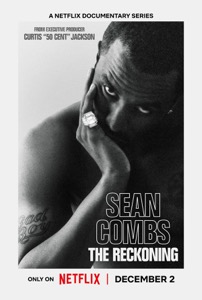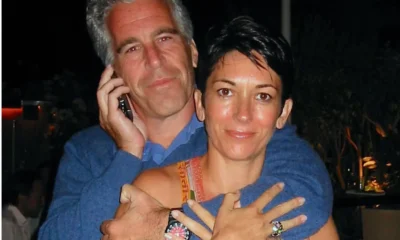News
YouTube Exposed the Most Corrupt Churches in America

The prosperity gospel—the belief that faith and generous giving will guarantee wealth, health, and success—has become a defining, controversial force in American Christianity. Its most visible champions, like Benny Hinn, Kenneth Copeland, and Joel Osteen, have amassed immense fortunes and followings by promising that “the more money you give to God, the more money God gives to you.” But beneath the polished sermons and stadium-sized crowds, critics argue that this theology preys on the vulnerable, distorts scripture, and leaves spiritual and financial devastation in its wake.
“Are you facing a financial difficulty right now? There’s only one way out of it: give to the Lord. Even that little you have left, give it to God.”
— Benny Hinn, as cited in a firsthand confrontation
The Faces and Fortunes of Prosperity Preaching
- Benny Hinn lives in a $10 million mansion and bought a private jet with donations from followers, claiming to perform miracles and divine healings. Critics label him a “false prophet, fake healer, and snake oil salesman,” noting that while donations flow into his bank account, his followers are left with little more than a prayer.

- Kenneth Copeland, who openly boasts about his riches, teaches that “God’s will for you is that you prosper.” His church’s services are intertwined with calls for donations, and his personal wealth is estimated in the hundreds of millions. The church operates a store, selling everything from branded hats to books, and emphasizes that “prosperity is God’s will for you”—not just financially, but in every aspect of life.

- Joel Osteen leads America’s largest church, which brings in nearly $100 million a year. His message is a blend of motivational speaking and prosperity theology, promising that “when you give, it can open doors” and that God “has great things in store for each one of us.” Critics, however, question the ethics of such immense personal wealth in the context of spiritual leadership, calling it “extremely hypocritical”.

The Theology and Its Consequences
The prosperity gospel is built on a simple, transactional premise: “Give to God, and He will give back to you—tenfold, a hundredfold, or more.” Sermons frequently cite figures like Abraham to justify the pursuit of material wealth, often equating a lack of prosperity with insufficient faith or generosity. As one church leader put it, “God is like a miracle machine where I could will miracles into my life, and if I give him my faith and money, he will give me whatever I desire.”
However, former insiders and theologians warn that this message is “completely unbiblically founded” and that it “distorts the core tenets of Christianity, shifting focus from spiritual growth and service to material gain.” The consequences can be severe:
- Families torn apart by failed promises and financial ruin
- Believers left disillusioned when miracles fail to materialize despite fervent giving
- Faith shattered by the realization that the system is rigged in favor of the preachers, not the congregants
Exploitation and Accountability
The prosperity gospel’s most significant harm, critics say, is its targeting of the desperate—those facing illness, poverty, or personal crisis. “The people that are often times the easiest to deceive are the ones with the best intentions…they go into these churches wanting to find God, wanting to find community, and they’re perfect victims for people to say, ‘Oh, well I see that your uncle has cancer. You know how you deal with that? You give a little money into the tithe bucket.’”
Testimonies reveal that some followers have stopped medication or emptied their savings in hopes of a miracle, only to be left with nothing. When confronted, preachers and their security teams often respond with hostility, removing critics and, in some cases, resorting to violence to silence dissent.

A Call for Discernment
While faith and generosity are central to many religious traditions, the prosperity gospel’s “give to get” approach raises profound ethical and theological questions. As one former believer emphasized, the difference between true biblical Christianity and the prosperity gospel is the ability to “rightly divide the word of God and understanding exactly what it’s talking about, because these Word of Faith and N belief sets are built completely on lies.”
“Beware of false prophets, who come to you in sheep’s clothing but inwardly are ravenous wolves.”
— Matthew 7:15

The prosperity gospel’s appeal is undeniable, but its legacy for many is not prosperity, but pain—a cautionary tale about the dangers of placing faith in promises of earthly wealth over spiritual truth. This is not an attack on faith, but a demand for accountability from those who distort scripture to enrich themselves at the expense of the vulnerable.1
Business
Google Accused Of Favoring White, Asian Staff As It Reaches $28 Million Deal That Excludes Black Workers

Google has tentatively agreed to a $28 million settlement in a California class‑action lawsuit alleging that white and Asian employees were routinely paid more and placed on faster career tracks than colleagues from other racial and ethnic backgrounds.
- A Santa Clara County Superior Court judge has granted preliminary approval, calling the deal “fair” and noting that it could cover more than 6,600 current and former Google workers employed in the state between 2018 and 2024.

How The Discrimination Claims Emerged
The lawsuit was brought by former Google employee Ana Cantu, who identifies as Mexican and racially Indigenous and worked in people operations and cloud departments for about seven years. Cantu alleges that despite strong performance, she remained stuck at the same level while white and Asian colleagues doing similar work received higher pay, higher “levels,” and more frequent promotions.
Cantu’s complaint claims that Latino, Indigenous, Native American, Native Hawaiian, Pacific Islander, and Alaska Native employees were systematically underpaid compared with white and Asian coworkers performing substantially similar roles. The suit also says employees who raised concerns about pay and leveling saw raises and promotions withheld, reinforcing what plaintiffs describe as a two‑tiered system inside the company.
Why Black Employees Were Left Out
Cantu’s legal team ultimately agreed to narrow the class to employees whose race and ethnicity were “most closely aligned” with hers, a condition that cleared the path to the current settlement.

The judge noted that Black employees were explicitly excluded from the settlement class after negotiations, meaning they will not share in the $28 million payout even though they were named in earlier versions of the case. Separate litigation on behalf of Black Google employees alleging racial bias in pay and promotions remains pending, leaving their claims to be resolved in a different forum.
What The Settlement Provides
Of the $28 million total, about $20.4 million is expected to be distributed to eligible class members after legal fees and penalties are deducted. Eligible workers include those in California who self‑identified as Hispanic, Latinx, Indigenous, Native American, American Indian, Native Hawaiian, Pacific Islander, and/or Alaska Native during the covered period.
Beyond cash payments, Google has also agreed to take steps aimed at addressing the alleged disparities, including reviewing pay and leveling practices for racial and ethnic gaps. The settlement still needs final court approval at a hearing scheduled for later this year, and affected employees will have a chance to opt out or object before any money is distributed.
H2: Google’s Response And The Broader Stakes
A Google spokesperson has said the company disputes the allegations but chose to settle in order to move forward, while reiterating its public commitment to fair pay, hiring, and advancement for all employees. The company has emphasized ongoing internal audits and equity initiatives, though plaintiffs argue those efforts did not prevent or correct the disparities outlined in the lawsuit.
For many observers, the exclusion of Black workers from the settlement highlights the legal and strategic complexities of class‑action discrimination cases, especially in large, diverse workplaces. The outcome of the remaining lawsuit brought on behalf of Black employees, alongside this $28 million deal, will help define how one of the world’s most powerful tech companies is held accountable for alleged racial inequities in pay and promotion.
Entertainment
What We Can Learn Inside 50 Cent’s Explosive Diddy Documentary: 5 Reasons You Should Watch

50 Cent’s new Netflix docuseries about Sean “Diddy” Combs is more than a headline-grabbing exposé; it is a meticulous breakdown of how power, celebrity, and silence can collide in the entertainment industry.
Across its episodes, the series traces Diddy’s rise, the allegations that followed him for years, and the shocking footage and testimonies now forcing a wider cultural reckoning.

1. It Chronicles Diddy’s Rise and Fall – And How Power Warps Reality
The docuseries follows Combs from hitmaker and business icon to a figure facing serious criminal conviction and public disgrace, mapping out decades of influence, branding, and behind-the-scenes behavior. Watching that arc shows how money, fame, and industry relationships can shield someone from scrutiny and delay accountability, even as disturbing accusations accumulate.

2. Never-Before-Seen Footage Shows How Narratives Are Managed
Exclusive footage of Diddy in private settings and in the tense days around his legal troubles reveals how carefully celebrity narratives are shaped, even in crisis.
Viewers can learn to question polished statements and recognize that what looks spontaneous in public is often the result of strategy, damage control, and legal calculation.
3. Survivors’ Stories Highlight Patterns of Abuse and Silence
Interviews with alleged victims, former staff, and industry insiders describe patterns of control, fear, and emotional or physical harm that were long whispered about but rarely aired in this detail. Their stories underline how difficult it is to speak out against a powerful figure, teaching viewers why many survivors delay disclosure and why consistent patterns across multiple accounts matter.
4. 50 Cent’s Approach Shows Storytelling as a Tool for Accountability
As executive producer, 50 Cent uses his reputation and platform to push a project that leans into uncomfortable truths rather than protecting industry relationships. The series demonstrates how documentary storytelling can challenge established power structures, elevate marginalized voices, and pressure institutions to respond when traditional systems have failed.
5. The Cultural Backlash Reveals How Society Handles Celebrity Accountability
Reactions to the doc—ranging from people calling it necessary and brave to others dismissing it as a vendetta or smear campaign—expose how emotionally invested audiences can be in defending or condemning a famous figure. Watching that debate unfold helps viewers see how fandom, nostalgia, and bias influence who is believed, and why conversations about “cancel culture” often mask deeper questions about justice and who is considered too powerful to fall.
Business
Luana Lopes Lara: How a 29‑Year‑Old Became the Youngest Self‑Made Woman Billionaire

At just 29, Luana Lopes Lara has taken a title that usually belongs to pop stars and consumer‑app founders.
Multiple business outlets now recognize her as the world’s youngest self‑made woman billionaire, after her company Kalshi hit an 11 billion dollar valuation in a new funding round.
That round, a 1 billion dollar Series E led by Paradigm with Sequoia Capital, Andreessen Horowitz, CapitalG and others participating, instantly pushed both co‑founders into the three‑comma club. Estimates place Luana’s personal stake at roughly 12 percent of Kalshi, valuing her net worth at about 1.3 billion dollars—wealth tied directly to equity she helped create rather than inheritance.

Kalshi itself is a big part of why her ascent matters.
Founded in 2019, the New York–based company runs a federally regulated prediction‑market exchange where users trade yes‑or‑no contracts on real‑world events, from inflation reports to elections and sports outcomes.
As of late 2025, the platform has reached around 50 billion dollars in annualized trading volume, a thousand‑fold jump from roughly 300 million the year before, according to figures cited in TechCrunch and other financial press. That hyper‑growth convinced investors that event contracts are more than a niche curiosity, and it is this conviction—expressed in billions of dollars of new capital—that turned Luana’s share of Kalshi into a billion‑dollar fortune almost overnight.
Her path to that point is unusually demanding even by founder standards. Luana grew up in Brazil and trained at the Bolshoi Theater School’s Brazilian campus, where reports say she spent up to 13 hours a day in class and rehearsal, competing for places in a program that accepts fewer than 3 percent of applicants. After a stint dancing professionally in Austria, she pivoted into academics, enrolling at the Massachusetts Institute of Technology to study computer science and mathematics and later completing a master’s in engineering.
During summers she interned at major firms including Bridgewater Associates and Citadel, gaining a front‑row view of how global macro traders constantly bet on future events—but without a simple, regulated way for ordinary people to do the same.

That realization shaped Kalshi’s founding thesis and ultimately her billionaire status. Together with co‑founder Tarek Mansour, whom she met at MIT, Luana spent years persuading lawyers and U.S. regulators that a fully legal event‑trading exchange could exist under commodities law. Reports say more than 60 law firms turned them down before one agreed to help, and the company then spent roughly three years in licensing discussions with the Commodity Futures Trading Commission before gaining approval. The payoff is visible in 2025’s numbers: an 11‑billion‑dollar valuation, a 1‑billion‑dollar fresh capital injection, and a founder’s stake that makes Luana Lopes Lara not just a compelling story but a data point in how fast wealth can now be created at the intersection of finance, regulation, and software.


























